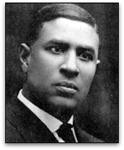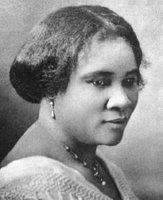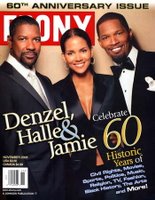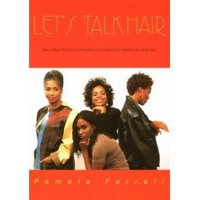Monday, August 28, 2006
Why Naturally You! Magazine? A Historical Perspective
Since the invention of a hair straightening liquid by Garrett Morgan in the early 1900’s, Black women – and some men – have used harsh chemicals in various forms to straighten tightly coiled hair. These chemicals, even in their present day form, can cause damage - from dryness and breakage to permanent hair loss - yet Black women have continued to use them for manageability, conformity, and a lack of options.
At the turn of the century, Blacks did not have access to the products needed to care for their hair in its natural state, kinky hair was considered unattractive or unkempt, and choices were limited. Morgan’s hair straightener, and later Madame CJ Walker’s hair growth and straightening system, were seen as solutions to these problems.
In an article entitled “Timeless Elegance: 60 Years of Beauty & Style,” published by Ebony Magazine in November 2005, Zondra Hughes outlined style and fashion trends among black women from the 40’s to present. From the soft wavy look made popular by Dorothy Daindridge in the 40’s, to the Afro of the 60’s, and the Jheri Curl in the 80’s, Black women’s hair has taken many forms.
As we’ve moved into the 21st century, Hughes calls fashion and beauty trends for Black women “uninhibited,” as naturals, locs, and braids have been embraced over chemically processed styles. Though Black women have worn many styles throughout history, natural hair has long been established as more than just a style preference or fad. In his book “A New Day in Babylon: The Black Power Movement and American Culture, 1965-1975,” William Van Deburg states “A natural hair style served as a highly visible imprimatur of Blackness; a tribute to group unity; a statement of self-love and personal significance.”
In addition, natural hairstyles such as braids, twists, afros, and cornrows do away with the perceived need for harsh chemicals. This allows women to avoid scalp burns, hair breakage, and hair loss that often result from using these products. As such, some Black women of every generation have chosen to wear their hair naturally regardless of trends, and natural hairstyles repeatedly resurface in the mainstream.
In the past 10 years, there has once again been a resurgence in natural hair styles. Such books as and “Let’s Talk Hair,” by Pamela Farrell, released in 1996, and “No Lye,” released by Tulani Kinard in 1997 have led the trend. Celebrities such as Lauryn Hill and Erykah Badu also influenced trends toward natural hair in the late 90’s, and Jill Scott, India Arie and others have kept natural hair in the forefront of mass media.
Today, a Google search for “black natural hair” returns 31,000 results, there are over a dozen books on the topic of natural hair care, several high traffic websites, and hundreds of salons offering natural hair services. Still, there is a marked lack of information on natural hair care in print hair care magazines targeted to Black women.
Most of the magazines in the Black hair care segment feature a large number of chemically processed styles, extensions, and weaves. The “natural looks” that are presented are often weaves in kinky textures, or braided styles created with synthetic hair. There are a few magazines that focus on braided styles, but the majority of these styles are created with extensions versus the model’s natural hair.
When authentic natural hair is highlighted in magazines, two categories prevail: 1) women with naturally curly hair versus kinky hair, and 2) women who wear their hair loced (dreadlocked). The range of natural hair textures is ignored, and few options are offered to women who don’t want to loc their hair.
To address the needs of a third category - those women who have naturally kinky or "nappy" hair and wish to wear it "loose" or unloced and free of chemicals or added hair - Naturally You! Magazine was launched in 2003.
Naturally You! also includes styles, tips and information for women with naturally curly and loced hair, but without overlooking the thousands of women who simply don't fit into these categories.
It is our belief that wearing one's hair naturally is indeed "a statement of self-love and personal significance" as Van Deburg states in his book.
Click here to find out more about Naturally You! Magazine's history and founding principles.
Subscribe to:
Post Comments (Atom)






No comments:
Post a Comment